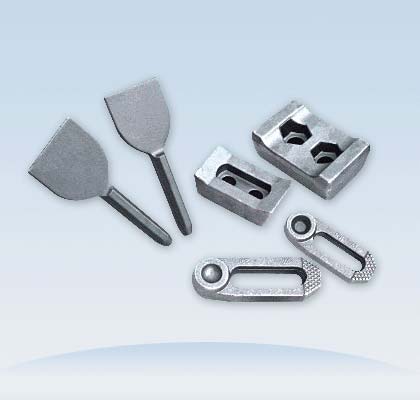- Contact Innally, Let you purchase forgings in China more favorable prices, products more assured!
- Hotline:+(86)15038323776 Email:innally@innally.com
How to choose the right tool forgings?
- Category: Aluminium alloy forging, Thermal forging
- |
- Date: 28/11/2023
It is recommended to fully understand the market situation in the selection process, conduct comparative analysis, and sign a complete contract to ensure the rights and interests of both parties.
Product Details
Choosing the right tool forgings is one of the keys to ensure the normal operation of machines and equipment. When choosing tool forgings, the following factors need to be considered:
Material: According to the use of the occasion and requirements, choose the appropriate metal material. Commonly used materials include steel, alloy steel, stainless steel and so on. When selecting, it is necessary to consider the strength, hardness, corrosion resistance, high temperature resistance and so on.
Specifications: According to the actual needs, choose the appropriate specifications and sizes. The selection of specifications needs to consider the installation space of the machine and equipment, matching size and other factors.
Quality: Choosing forgings with reliable quality ensures that they have a longer service life during use. Need to consider the quality assurance of forging, processing fineness, surface treatment, etc.
Price: When choosing tool forgings, it is necessary to consider the balance between its price and use requirements and service life. Under the premise of meeting the requirements of use, choose a reasonable price forgings.

Supply capacity: It is necessary to consider the supplier’s supply capacity, delivery cycle and after-sales service. Choosing a reliable supplier can guarantee the quality and supply stability of forgings.
When selecting tool forgings, the following steps are recommended:
Clear use requirements: First of all, it is necessary to clarify the use of tool forgings and requirements, such as working pressure, working temperature, matching size, etc.
Determine the materials and specifications: according to the requirements of use, select the appropriate materials and specifications. Make a selection based on the above factors.
Supplier inspection: Select reliable suppliers and understand their production capacity, quality assurance and after-sales service. It is recommended to conduct site visits to suppliers or request samples for testing.
Comparative analysis: Comparative analysis of forgings provided by different suppliers, including price, quality, supply cycle and other factors to choose the most suitable supplier.
Contract signing: After confirming that the supplier meets the requirements, the contract is signed and delivery is arranged. It is recommended to specify the specifications, quality requirements, price, delivery period and other terms of the forging in the contract.
Acceptance and use: After receiving the forgings, quality inspection and use testing are carried out to ensure that they meet the design requirements and use performance. If necessary, the unqualified forgings can be returned or claimed.
In short, choosing the right tool forging needs to consider many factors, including materials, specifications, quality, price, supply capacity and use requirements. It is recommended to fully understand the market situation in the selection process, conduct comparative analysis, and sign a complete contract to ensure the rights and interests of both parties.
nannan
INNALLY mainly provides you with various types of cast and forged parts products. Welcome your inquiries! innally@innally.com
Related Products
Search
Forging center
- Steel forgings
- Aluminium alloy forging
- Titanium alloy forging
- Stainless steel forging
- Copper forging
- Automotive forgings
- Locomotive forging
- Bicycle forgings
- Motorcycle forging
- Rigging and fasteners
- Bearing forging
- Electric power fittings
- Marine forging
- Mechanical forgings for metalworking
- Mining machinery forgings
- Marine engineering forgings
- Construction machinery forgings
Popular product

© 2025. All Rights Reserved.






